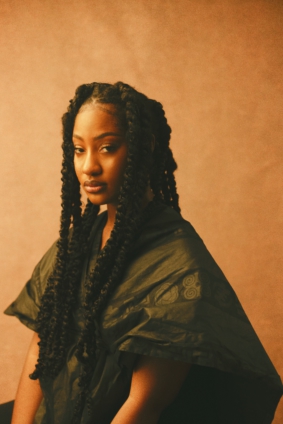Beneath the harmattan skies of Lagos floats a bold new sound. Is it Afropop? Is it Amapiano? No, it’s alté, Nigeria’s pioneering alternative music scene, one of its latest and greatest cultural exports.
What started off as a non-conformist subculture, a rebellion in a conservative country, has become a fully-fledged iconoclastic movement capturing the sounds and styles of a young generation – one that not only thinks outside of the box, but seeks to get rid of parameters altogether.
In a male-dominated landscape, four women are flying in the face of industry norms, societal expectations, and Western preconceptions to expand the ever-changing landscape of contemporary African music.
Cementing their positions in a suite of trailblazers, visionaries and innovators, Tems, Lady Donli, Wavy The Creator and Amaarae are at the forefront of a movement that’s breaking the mould. British Vogue meets them below.
Tems
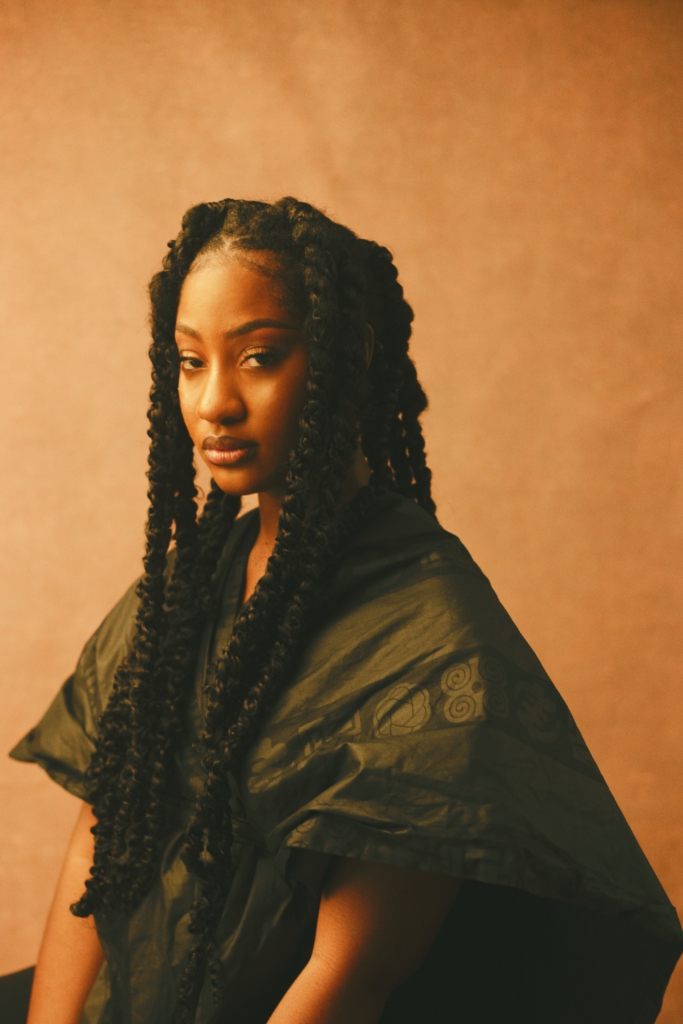
How would you describe your sound and style in four words?
Powerful. Deep. Heartfelt. Sweet.
A scene. A lifestyle. A movement. Can alte ever truly be defined?
It’s a small but strong force of bold, strong and courageous people thinking outside of the norm in the Nigerian space.
They’re original, they’re being themselves and nobody can give them their approval. Nobody can give you that apart from God.
There will always be wolves where there are sheep, there will always be ants where there is sugar. But our own sugar is different.
Where does your music sit within Nigeria's current landscape?
Something that has always been untouched in terms of its purity in Nigeria is art. That’s the hope, that’s the light, that’s the saving grace that we have. Artists have become the saviours in all the corruption and wickedness.
Nigeria is a country of people that have been forced together, so there’s always been a conflict. There will always be. But you see with artists, we heal.
The conflict is the wound and artists are your white blood cells that fight that. And we’re almost taking over. We’re not doing it intentionally, but the art is creating a sense of hope again in Nigeria.
My music is here to serve as part of the healing force. To calm the noise made by all these external forces nagging at everyone – the frustration, the hardship, the mental issues.
Trust me, the suffering is much. I think that’s where my music, along with everybody else that does music in Nigeria, comes in. To heal, to soothe. It’s like aloe vera (laughs).
What statement is your music making on behalf of the African millennial?
You cannot create a song like “Try Me”, just “because”. It is spiritually embedded in you. That’s how I was really feeling; that’s me, 100 per cent. And that’s how people are living and feeling right now. I’m somebody who has gone through all of these frustrations and I have found myself inside of it. I’ve found hope in being hopeless, I’ve found faith in being faithless. And that’s what I’m saying through my music.
How do you see your artistry compared with some of the more conservative aspects of African culture(s) and convictions?
My music is highlighting how society has chained us. We’re free, but we’re in chains. Everywhere is just a spirit of frustration. The chains on the people in the “Try Me” video represent that.
My music is calling for action, a mental awakening. What is the out? The out is not a politician, or money. The out is art. The out starts with self-acceptance. Imagine if more people were free enough to be who they were born to be?
How will alternative music shape culture and conversations beyond West Africa?
No matter where you are in the world, there’s a suppression happening everywhere.
My music is for everybody and anybody that connects to it. My people are my people regardless of what tribe they come from: Yoruba people, Nigerians, people in the diaspora. At the end of day, yes we’re different, but if you go back we’re coming from the same place.
My music is a call to come back home, a call to wake up, a call to come into who you are. I think that’s going to help a lot of people outside of Nigeria.
Amaarae
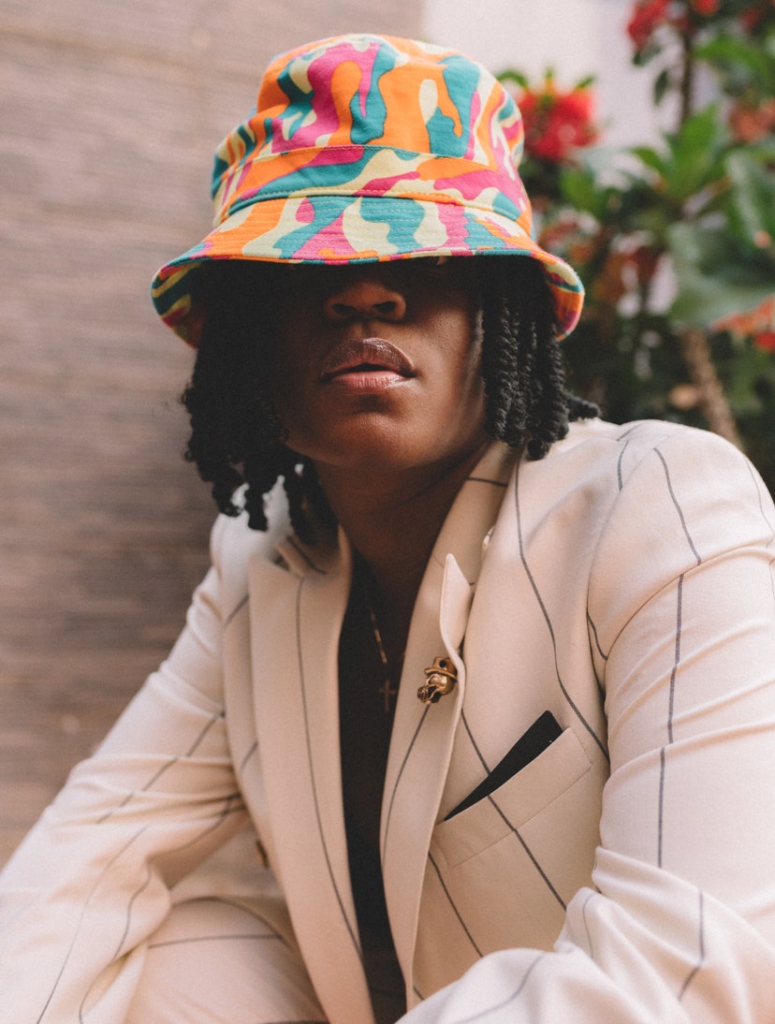
How would you describe your sound and style in four words?
Colourful. Sweet. Sensual. Bold.
A scene. A lifestyle. A movement. Can alte ever truly be defined?
To me, alté is punk rock, really. Alté to Afrobeats is like what underground punk music was to The Beatles, you know? The Beatles were international but then you had The Ramones who were like, underground superstars.
Where does your music sit within Ghana's versus Nigeria's current landscape?
We live in a cultural paradox in Ghana – while it’s feeding your spiritual soul, it’s also trying to dampen it.
I almost don’t consider my music to be a part of Ghana’s landscape, and in many ways, I’m OK with that (laughs).
It allows me to push my sound because I know that the spaces in which it’s going, those audiences are ready to welcome that.
Nigerians on the other hand are really in a space creatively where they will accept anything.
They’re ready for their horizons to be broadened. If you listen to Burna Boy’s album or Adekunle Gold’s album or Fireboy’s album, those were really different sounds from traditional Afrobeats.
Just seeing the way Nigerians responded to that was really interesting – those were really big musical moments for them.
What statement is your music making on behalf of the African millenial?
To hell with fear, kick ass. I live in my own world and I love it – if people wanna come along on that journey and that experience, I won’t let them down. It’ll be a hell of a ride, you know?
How do you see your artistry compared with some of the more conservative aspects of African culture(s) and convictions?
“LIKE IT” doesn’t exist on TV in Sub-Saharan Africa and do you know why? They asked me to take the Beyoncé as Jesus out, and I wouldn’t do it.
They didn’t care about the blow jobs the dude was getting in the hallway, the little people, the strippers, or the drag queens. They said look, you can do whatever the hell you want but what you’re not gonna do is hell with our Lord and Saviour Jesus Christ (laughs).
My mum is my manager, so she strikes the happy medium between what’s progressive and what’s traditionally African. When I first started out with my rainbow coloured hair, I think it was a bit jarring for people.
I got at least three or four invitations to church. But one thing having coloured hair really did was change the scope of how Ghanaians perceive it. Now, my 50-year-old aunts text me wanting to try purple streaks and honey blonde in their hair.
Sometimes you just have to say fuck it and try because haters gon’ hate, but they’ll end up coming around to the idea.
How will alternative music shape culture and conversations beyond West Africa?
Alternative music in West Africa is the next frontier after people move past Afrobeats and discover they want more of a balance between what they know and what they find foreign to the ear and to the mind.
The alternative scene is consistently evolving, at a faster rate than Afrobeats actually. The way that alté artists present themselves already, it’s a full package: it’s fashion, it’s culture, it’s literature, it’s music. I think coming from Africa, it’s gonna start a whole new cultural renaissance.
Lady Donli
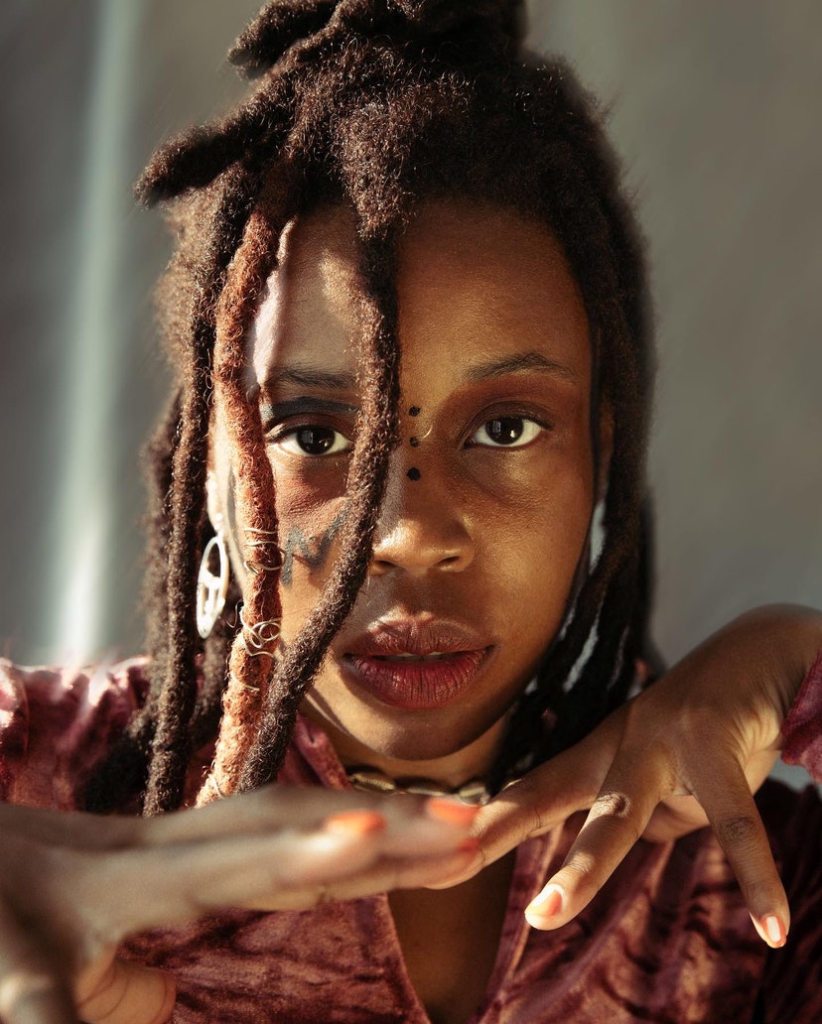
How would you describe your sound and style on four words?
Crazy. Eccentric. Original. Nostalgic.
A scene. A lifestyle. A movement. Can alte ever truly be defined?
Alté is subculture. A lot of things in African culture try to limit the way we express ourselves and try to put us into this conservative bracket.
Alté has also died and been born so many times. When I look at the older generations of Nigerian artists like Charly Boy, and how eccentric he was, I’m like yo, that was alté for his time too.
These things are lost because we don’t document them well in Nigeria, but there are people that have always done their own thing, they just didn’t have a name for it yet.
Where does your music sit within Nigeria's current landscape?
With my first album, I wanted to show people that there’s more to African music than just Afropop. I wanted to create something that evokes nostalgia, that made people remember that once upon a time, there were other things going on.
Something in Nigeria that we take for granted is community. People assume that if you’re not Wizkid or Davido, then you’re irrelevant, but that’s something I treasure about the underground.
You can have a wonderful cult following, you can still do sold-out shows. Stronger together is a serious thing.
What is your music making on behalf of the African millenial?
It’s showing boldness. I’ve been in spaces where people have tried to shut me down, ultimately because of misogyny.
Seeing my favourite Nollywood actresses like Patience Ozokwor come into themselves was so inspiring to watch as a young Nigerian woman. So for me, as a woman, the most important thing is: talk your shit. That’s what I’m telling everyone, that’s my energy: come with your own smoke.
How do you see your artistry compared with some of the more conservative aspects of African culture(s) and convictions?
Being Hausa and growing up in Northern Nigeria, I already come from a culture of conservatism. But I also come from an environment where my parents were never scared of me expressing myself. I don’t particularly care for judgement from other people, because in my home, I don’t get that. I’m privileged to have that – it’s easier for you to bridge the gap once you’re less afraid to be yourself.
When I look back at the legends, the people I wasn’t even alive to see, these guys were multi-genre artists doing the most! If they could do that in the ’70s and ’80s, I think I’m OK in 2020. I’m happy to show people that there are different ways to exist in the music industry.
How will alternative music shape culture and conversations beyond West Africa?
Alternative music is the music that is going to cross over genuinely without even trying – it’s going to be at the forefront of change.
Wavy The Creator
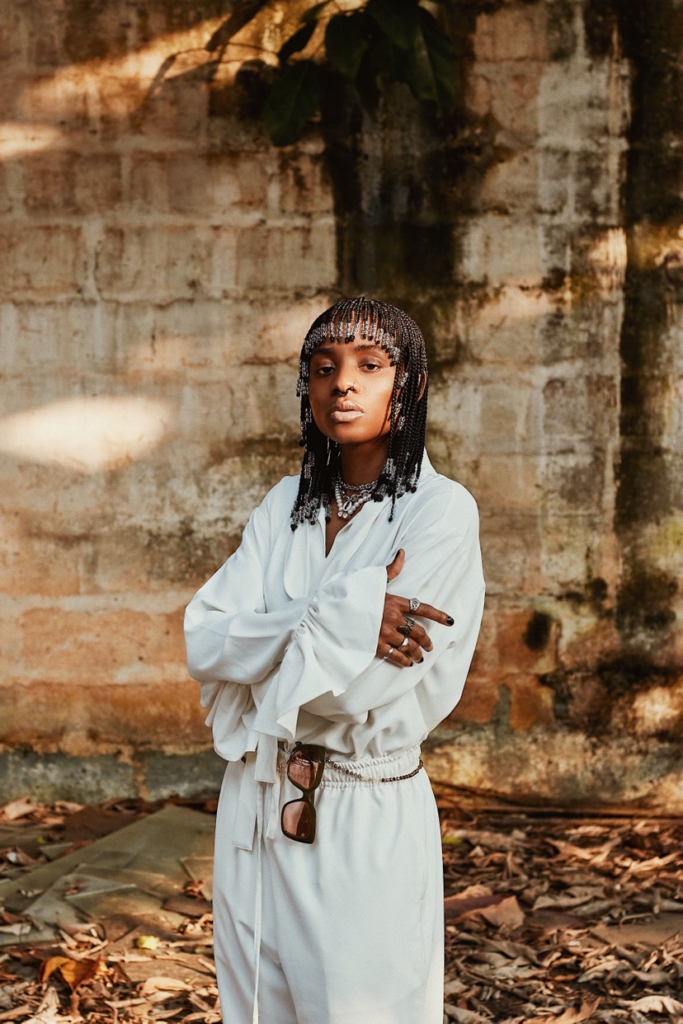
How would you descibe your sound and style in four words?
Very, very, extraordinary. Eccentric.
A scene. A lifestyle. A movement. Can alte ever truly be defined?
It’s about being different, not following the crowd but being your own self. That’s what actually drives the alté movement – it’s how well you can be your own self and also not be afraid to show it. In a way, we’re still bringing a culture together. We’re bringing new ideas and fusing it with everything we know already. We’re making a new Nigeria.
Where does your music sit within Nigeria's current landscape?
As a country we’re so strong on culture and beliefs. But for us to progress as a society we have to be able to allow new ideas to form in our minds. The alternative music scene could change everything about Nigeria as a whole – it will allow people to be just as open-minded as we are.
What statement is your music making on behalf of the African millenial?
It goes back to being yourself and owning who you are, you know? I want to be able to inspire someone to be whoever they want to be at any point in their life, and show them that they don’t have to be afraid of what change can bring for them.
How do you see your artistry compared with some of the more conservative aspects of African culture(s) and convictions?
One of my worries as an artist starting out was that I was trying to bring something different to the scene. I wasn’t trying to follow the norm at all. My first single was nothing close to Afrobeats – it was electronic dance music. But when I put that out and saw the young kids gravitating towards it because it was so fresh and unlike anything they’d heard before, it gave me hope.
Young people are in charge now. We are the next generation that’s going to show how things can be different from the past.
How will alternative music shape culture and conservations beyond West Africa?
I feel like the world is basically our oyster, our canvas. Right now, we’re on top. We just have to keep using that momentum to break every boundary that was once there because we have it… the talent, the culture, everything. We have the floor, so I just hope we continue to use it. If we just stay as consistent as possible, it’s gonna be hard to ignore.
Latest Stories
-
Zirkzee scores winning penalty as 10-man Manchester United knock out Arsenal from FA Cup
11 minutes -
George Quaye tips Dzifa Gomashie for Tourism Minister position
17 minutes -
MTN FA Cup: Kotoko beat Accerler8z to book last 16 spot
21 minutes -
Free SHS and the NDC’s dilemma: A look into the future
46 minutes -
NIB D-G bought state lands at Cantoments for ¢160k – Documents reveal
1 hour -
Dr Arthur Kennedy: A reset for Ghana
2 hours -
Teacher trainees call for resolution of strikes before colleges reopen
2 hours -
National Prayer and Thanksgiving Service to be held today at UPSA
2 hours -
‘Take the naughty, stealing taxes away’ – E.P Church Moderator to President Mahama
3 hours -
Employee Assistance Programmes: The heartbeat of a 24-Hour economy
3 hours -
Atebubu drivers attack Police after suspected robbers killed 75-year-old driver
3 hours -
Ejura Death: Family rejects autopsy report, alleges police brutality
3 hours -
Paramount Chief of Wenchi instructs illegal miners to stop operating in the area
4 hours -
AGRA Board Chair urges partners and MPs to support Ghana’s food systems transformation efforts
6 hours -
Sissala East constituents urge Mahama to recover looted state funds
7 hours

